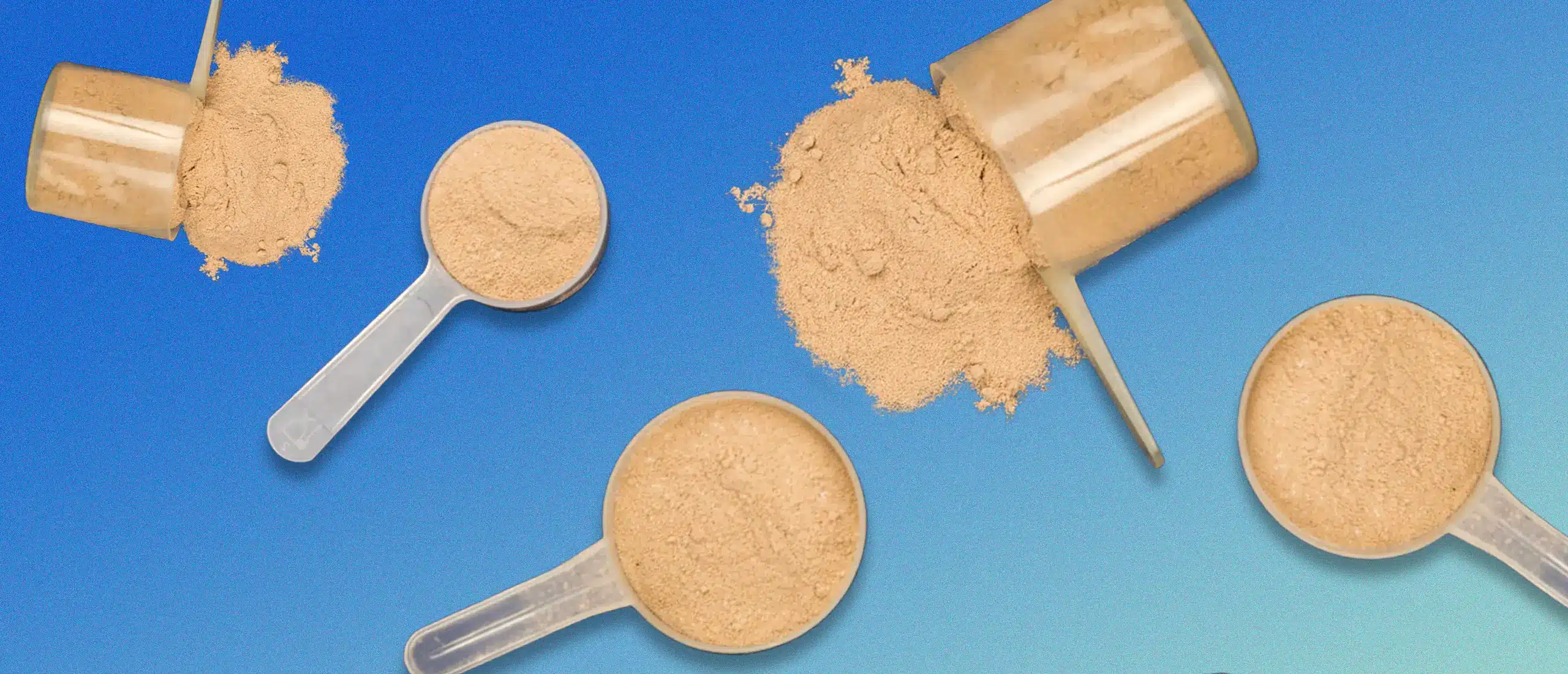How Much Post-Workout Protein Do You Really Need? Peter Attia Weighs In
If you’ve wasted way too much time thinking about how much and when to time your protein intake around your workout, hi, welcome to the club. However, according to nutrition researcher and protein health wizard Don Layman Ph.D., the details really don’t matter if you aren’t consuming enough protein throughout the day.
How do you know if you’re getting enough? On an episode of The Drive, Layman explains to longevity doctor Peter Attia, M.D. that you probably aren’t. The current US Recommended Dietary Allowance (RDA)—0.8 grams of protein per kilogram of body weight per day—might be enough protein to stay alive, but it’s a far cry from how much you need to build and maintain muscle.
How Much Protein Do You Really Need?
Many people think about protein as a percentage of their daily macronutrients, but Layman argues it should be an absolute number. “If your calorie needs go down, your protein needs don’t,” he says. Why? Protein intake becomes more important with age.
“When you’re growing, hormones are your friend,” says Layman. Through childhood and adolescence, anabolic (or muscle-building) hormones like testosterone and human growth factor are at an all-time high, helping us grow and build muscle. But as we get older, anabolic hormones start to slow down. “We can buffer that loss of hormones with high-quality protein (mostly, leucine) and resistance exercise,” he adds.
Layman aims for 1.6 grams of protein per kilogram of body weight (twice the current RDA of 0.8 grams/kg). “Ideally that protein should come from complete sources,” he says. Complete sources of protein are those that contain all nine essential amino acids—like meat, poultry, fish, eggs, dairy, and whey protein—but Layman is particularly interested in amino acids like leucine, lysine, and methionine which specifically assist with muscle protein synthesis.
The problem: If you’re on a plant-based diet, these amino acids can be hard to come by. However, Layman explains eating around 1.6 grams/kg of protein per day covers for differences in protein quality. “If you’re eating 100 to 120 grams of protein per day from plant or animal sources, you’re probably getting enough. But if you’re eating 50 grams per day and you’re plant-based, you’re going to be in trouble,” he says.
When to Eat Protein For Muscle Growth
Layman also recommends thinking about how you distribute your protein throughout the day.
There’s a limit to how much protein your muscle can use to build muscle in one sitting. “Muscle can handle meals for an optimal anabolic response between 25 to 60 grams of protein,” he says.
But there’s also a threshold. “Small meals of around 15 grams of protein will never stimulate muscle protein synthesis,” says Layman. In other words, the protein bar you’re currently chewing on at your desk is likely just being used to meet your energy needs, rather than building muscle.
For hypertrophy (or muscle growth), Layman suggests four meals of at least 35 grams of protein each spaced throughout the day (you could also supplement with something like protein powder or protein gummies). “If you want muscle to respond, you have to commit to protein.” He recommends front-loading protein early in the day, with a protein-dense breakfast. “After fasting through the night, your muscle stays catabolic until you get protein, if you don’t get protein, you don’t maintain muscle,” he says. “That’s why I have people shoot for 40 to 45 grams of protein at their first meal of the day.”
So, How Much Protein Should You Eat After a Workout?
“There’s debate about the effect of eating protein before a workout, but there’s no doubt about the benefit of protein after exercise,” says Layman. Exhaustive exercise is by nature catabolic (or breaks muscle down)—whether you eat protein before a workout won’t change that, he explains. “After a workout, however, mTOR is primed, and your body is ready to receive protein.”
The mammalian target of rapamycin (mTOR) gene is responsible for regulating protein production including muscle protein and directly influences cell growth, division, and survival. When you eat protein, mTOR springs into action, helping your body build muscle.
If you’re relatively untrained—which Layman defines as someone in their first four weeks of training—get 35 to 60 grams of protein within two hours of your workout. That said, the anabolic effect is still happening over the next 24 to 48 hours. “Protein makes [the anabolic response] more effective all the time,” Layman says. So, yes, eat protein after your workout, but continue to keep it in check.
If you’ve been hitting the gym for a hot minute, however, timing doesn’t matter as much. “If you’re well-trained, I don’t see any effect difference between having your protein two hours after exercise versus having it in three to four meals a day. You won’t see any difference in mass or strength,” says Layman.
The Bottom Line
To build muscle, aim to get at least 1.6 grams of protein per kilogram of body weight per day. Since the body can’t absorb more than 60 grams of protein per meal, break your protein down into four meals a day, with at least 35 grams of protein at each meal. If you’re new to working out shoot for 35 grams of protein at least two hours after your workout and at each meal throughout the day. However, if you’re already on a steady fitness regimen, just hit your daily protein needs, timing won’t make a difference in mass or strength.













